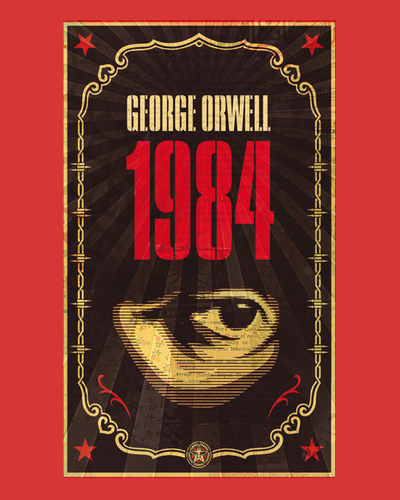We live in a world where governments and corporations spy on us all the time, where countries around the world have seen the rise of dictatorships, and where misinformation seems to infect everything we are told. And that’s probably why people have been reaching for George Orwell’s 1984.
More than 70 years after its initial release, the title of the book is still used as shorthand for the dangers of totalitarianism. Let’s see why.

| Language | English |
| Release Date | September 3, 2013 |
| Genre | literature |
| Author | George Orwell |
| File Size | 2792 KB |
| Rating | (4.62) |
1984 follows Winston Smith who lives in a country called Oceania. Here, a single ruling party watches over everything everyone does through a program called Big Brother. They use telescreens — TVs that watch the viewer (sound familiar?) — and spies to keep track of their citizens.
Winston begins to write in a diary, an illegal act of individualism in Oceania, and even strikes up a romantic relationship with a woman named Julia.
Throughout the story, Winston and Julia try to join the Brotherhood, a resistance group looking to overthrow the tyrannical government. But as you might expect, not everyone is what they seem, and it’s hard to know who to trust.
The novel takes place in a fleshed out world where the lies of dictators and the crushing boot of tyranny have almost entirely won out. It is terrifying but oh-so compelling.
Published in 1949, 1984 is a warning. Orwell had seen the rise of totalitarianism across Europe, and he’d witnessed the massive human cost of these regimes. More importantly, he saw how susceptible any country is to it, given the right circumstances.
The book gave us many phrases that have become popular ways to describe problems in political life, including:
This novel came as part of a wave of dystopian science fiction, along with books like Aluduous Huxley’s Brave New World.
But 1984 is far and away the most popular dystopian novel of all time. Its ability to weave complex criticism of totalitarianism into a story that is a great read on its own has allowed it to stand the test of time.
Readers have also noted that parts of the book seem darkly prescient. The rise of surveillance technology and the battle over what is seen as true and false are particular causes for alarm for many. That has made the book’s relevance resurge in the last decade.
If you haven’t read it, or haven’t read it since you were assigned it in High School, it might be time to pick it up.
Even for those who argue against many of the characterizations in the novel, 1984 is one of those books that is worth reading because it is such a powerful cultural touchstone. And its impressive, sometimes clever worldbuilding is a delight of its own.
Orwell’s story of totalitarianism has left readers shaken for generations, and whatever your politics, that makes it worth a look.